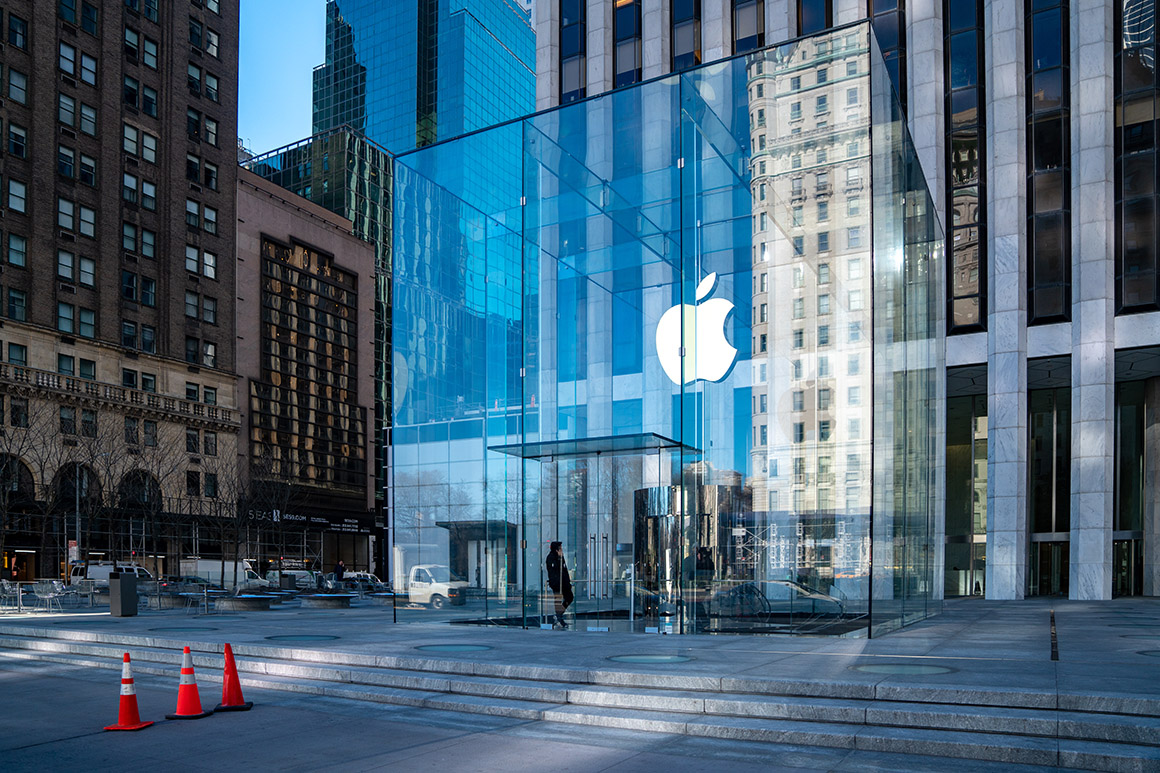
But for the past few years, Silicon Valley has been trying to dig itself out of a hole precisely on this issue, including over the 2018 Cambridge Analytica debacle, where Facebook made data available to researchers only to find it was sold for political manipulation, and the 2013 Edward Snowden revelations that tech and telecom companies were sharing data with the National Security Agency.
Tech companies, say experts, worry about more than their big-brother image. They’re also concerned that government will overreach, like by asking for more and different data than it needs to meet real national needs. After a call between tech leaders and the White House on Wednesday, sources told POLITICO that the administration had asked companies to share data to help track the virus, but the White House denied it at the time.
Facebook and Twitter declined to comment on whether they had received government requests to share data. Google initially did not respond, but after an earlier version of this story posted last night, a spokesman emailed to say the company was “exploring ways that aggregated anonymized location information could help in the fight against COVID-19,” and the project would “follow our stringent privacy protocols and would not involve sharing data about any individual’s location, movement, or contacts.”
The Washington Post reported Tuesday afternoon that the government is in talks with the tech industry about getting access to aggregated and anonymous mobile phone data. Israel is in the early stages of a plan to used individual phone-tracking to warn users away from engaging with those affected with COVID-19.
“Companies are extremely cautious because there is real legal risk of sharing anything at an individual level and societal risk — we don’t want all protections going out the doors because there’s an emergency,” says Jules Polonetsky, a former AOL chief privacy officer, now CEO of the advocacy group Future of Privacy Forum.
It’s possible to manage those risks through “trusted relationships” between tech leaders and high-ranking U.S. government officials, says Danny Sepulveda, a former Obama administration State Department official who worked closely with Silicon Valley on setting global rules for the Internet. But as it turns out, the handful of companies with data comprehensive enough to be useful amid the coronavirus — Google, Facebook, Amazon, perhaps Twitter — are the exact same companies that have sparred the most with the federal government in recent years, over everything from privacy to competition to their content rules.
A decade ago, things looked very different. The public was captivated by Google Flu Trends, a project using the search terms people typed into Google to map the spread of influenza. (There was a Dengue fever version, too, in countries like Mexico, Brazil, and Singapore.) The project was criticized in some years for off-base predictions, and, says Brilliant, who oversaw the project, company leadership eventually lost interest in it. Google shuttered it in 2015.
Given current concerns about tech and privacy, the idea of a surveillance-driven project based on search results might seem more terrifying than captivating. (One doctor on Twitter has already called Google’s modest virus-screening effort “dystopian.”) But COVID-19 has again upended the politics around tech, says Brilliant, the former Google.org official. “There’s few things in life that are so much more important than the issue of ‘Is Big Tech too powerful?,’ but without a doubt, a pandemic is one of those,” he says.
Experts say that one easy way to protect users’ privacy – pooling the individual data into big buckets to make it more anonymous before handing it over – is off the table here. When it comes to public health, researchers would likely need very granular, even individual, data for at least the first step of the process: figuring out how to build accurate prediction models.
A clear federal approach to digital-data privacy could help, but there isn’t one in the United States. In the wake of the Cambridge Analytica controversy, there was a bipartisan push for a federal privacy law that would govern how companies like Facebook, Google, Amazon, and Twitter could use the data collection on its scores of users. But two years later, Congress has yet to actually such pass a law. What’s more, the U.S. lacks the sort of data privacy regulator common in Europe to help figure out when public emergencies might outweigh the public’s privacy.
Advocates say that even well-intended loosening of privacy restrictions can have real and lasting risks. Changes to privacy during emergencies, warns the Future of Privacy Forum’s Jules Polonetsky, can be difficult to rein back in when things return to normal. Says Polonetsky, “That’s how in other countries, in dictatorships, things have started — there’s a battle, then there’s a war, and next thing you know you’re living with it for 30 years.”
Source: politico.com
See more here: news365.stream






